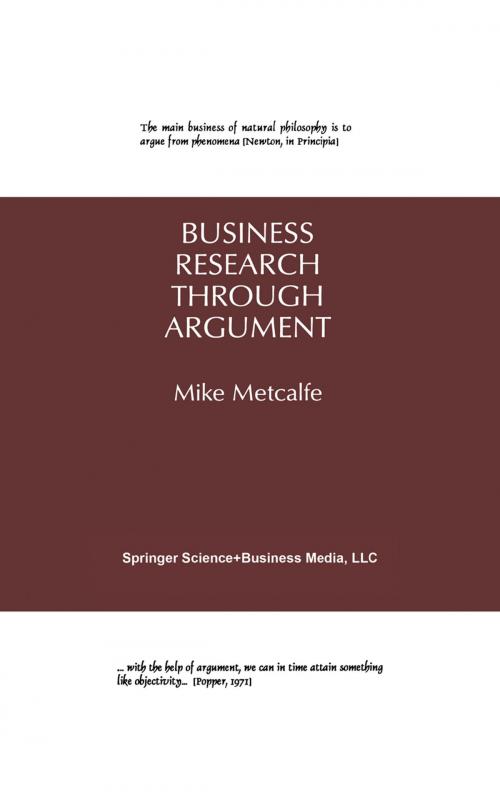Business Research Through Argument
Nonfiction, Social & Cultural Studies, Social Science, Methodology, Business & Finance, Management & Leadership, Operations Research| Author: | Mike Metcalfe | ISBN: | 9781461522911 |
| Publisher: | Springer US | Publication: | December 6, 2012 |
| Imprint: | Springer | Language: | English |
| Author: | Mike Metcalfe |
| ISBN: | 9781461522911 |
| Publisher: | Springer US |
| Publication: | December 6, 2012 |
| Imprint: | Springer |
| Language: | English |
This book suggests that business research, in the collection, analysis, and communication of evidence, will benefit from explicit acceptance of research as argumentation. Argumentation is the process of compiling an argument through selection and organization of the relevant evidence.
Recently, business research methods books have placed too much emphasis on the scientific method as brute empiricism, using only large sample statistical testing and demanding prediction through retesting old theories. Especially with regard to the study of human activity, there is now much evidence that there is not one special scientific method.
This book argues that all types of empirical data, including statistics and personal experiences, be accepted as data, but that it is essential that these observations be explained. This book will provide researchers and postgraduate business students with a strategy for conducting research that encourages thought, provides a way of critically perceiving previous research, as well as suggesting a logical structure for communicating their research.
This book suggests that business research, in the collection, analysis, and communication of evidence, will benefit from explicit acceptance of research as argumentation. Argumentation is the process of compiling an argument through selection and organization of the relevant evidence.
Recently, business research methods books have placed too much emphasis on the scientific method as brute empiricism, using only large sample statistical testing and demanding prediction through retesting old theories. Especially with regard to the study of human activity, there is now much evidence that there is not one special scientific method.
This book argues that all types of empirical data, including statistics and personal experiences, be accepted as data, but that it is essential that these observations be explained. This book will provide researchers and postgraduate business students with a strategy for conducting research that encourages thought, provides a way of critically perceiving previous research, as well as suggesting a logical structure for communicating their research.















